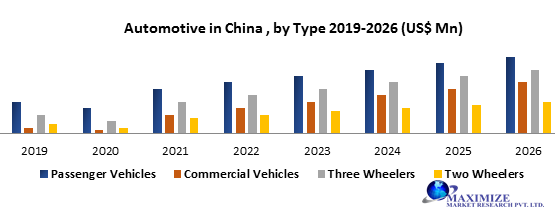Controversy: PVV Minister Vetoes Royal Honors For Asylum Volunteer Workers

Table of Contents
The PVV Minister's Rationale
The Partij voor de Vrijheid (PVV), known for its hardline stance on immigration, has consistently advocated for stricter asylum policies and reduced government support for refugees. The minister's veto of the royal honors, therefore, aligns with the party's broader platform. The reasoning behind the veto, as communicated by the party, centers on several key points:
- Alleged Misuse of Funds: The PVV claims that some organizations supporting asylum seekers have mismanaged funds, diverting resources away from their intended purpose. Specific examples, however, remain largely unsubstantiated.
- Concerns about Effectiveness: The party expresses doubts about the overall effectiveness of certain volunteer initiatives, suggesting that their impact on asylum seekers' integration is minimal. No concrete evidence is provided to support this assertion.
- Political Motivations: The PVV suggests that some volunteer organizations harbor political motivations, potentially using their work to promote a particular political agenda. This allegation has been widely contested by volunteer groups.
A statement from a PVV spokesperson reiterated these concerns, emphasizing the party's commitment to responsible use of taxpayer money and efficient asylum integration processes. While the exact wording of the minister’s statement remains unavailable publicly, it's understood that these concerns formed the basis for their decision.
Reactions and Public Outcry
The minister's decision has been met with a storm of criticism. The veto sparked outrage among various segments of Dutch society:
- Opposition Parties: Opposition parties vehemently condemned the veto, accusing the PVV of undermining volunteer efforts and disrespecting those who dedicate their time to assisting vulnerable individuals. Many called for a reversal of the decision.
- Volunteer Organizations: Volunteer organizations expressed deep disappointment and anger, highlighting the demoralizing effect of the veto on volunteers and the chilling effect on future volunteer initiatives.
- Human Rights Groups: Human rights groups criticized the decision as discriminatory and a setback for solidarity and compassion towards asylum seekers.
- Public Opinion: Public reaction has been largely negative, with numerous online petitions and social media campaigns expressing support for the volunteers and condemnation of the PVV's actions.
The ensuing debate has dominated national news headlines, with several protests and public demonstrations organized in response to the veto. The controversy highlights the deep divisions within Dutch society regarding immigration and asylum policies.
The Role of Royal Honors in Dutch Society
Royal honors in the Netherlands, such as the Order of Orange-Nassau, carry significant prestige and are considered a high mark of recognition for exceptional contributions to society. The awarding of such honors is a deeply ingrained tradition, signifying national appreciation for outstanding achievements in various fields:
- Traditional Aspects: The ceremony and its associated protocols are rich in tradition, reflecting the historical ties between the Dutch monarchy and its citizens.
- Prestige and Recognition: Receiving a royal honor represents a significant acknowledgment of one’s service and dedication, carrying considerable social and professional weight.
- Award Criteria: The selection process involves rigorous scrutiny of candidates' contributions, ensuring that only those who meet high standards receive recognition.
This veto marks a significant departure from this tradition, sparking questions about the future of royal honors and their potential politicization. It raises concerns about the potential for similar vetoes in the future, particularly concerning politically sensitive areas.
Legal and Ethical Implications
The PVV minister's decision raises several important legal and ethical questions:
- Legal Challenges: There are potential legal avenues to challenge the minister's authority to veto the royal honors, based on the laws governing the awarding of national decorations and the powers vested in individual ministers. Legal experts are exploring the possibility of judicial review.
- Ethical Considerations: The ethical implications are substantial. The decision raises concerns about fairness, transparency, and the potential for political interference in processes traditionally considered independent and merit-based. The minister’s actions could set a dangerous precedent, potentially chilling future volunteer efforts.
Conclusion
The PVV minister's veto of royal honors for asylum volunteer workers remains a highly contentious issue, highlighting deep-seated divisions within Dutch society on immigration and the role of volunteerism. While the PVV justifies its decision based on concerns about funding and effectiveness, critics argue that it undermines crucial volunteer efforts and disregards the dedication of individuals working to support asylum seekers. This controversy underscores the importance of continued dialogue and debate about asylum policy, volunteer recognition, and the proper role of government in supporting vulnerable populations. We urge you to share your thoughts on the PVV Minister Vetoes Royal Honors controversy in the comments section below or on social media, using #PVV, #RoyalHonors, #AsylumVolunteers, and #DutchPolitics to contribute to the conversation.

Featured Posts
-
 Bmw And Porsches China Challenges A Broader Industry Issue
May 11, 2025
Bmw And Porsches China Challenges A Broader Industry Issue
May 11, 2025 -
 The Fight Against Ev Mandates Heats Up Car Dealers Renewed Resistance
May 11, 2025
The Fight Against Ev Mandates Heats Up Car Dealers Renewed Resistance
May 11, 2025 -
 Indy Car Season Docuseries Fox Sets May 18th Premiere
May 11, 2025
Indy Car Season Docuseries Fox Sets May 18th Premiere
May 11, 2025 -
 The Next Pope Analyzing The Qualities And Backgrounds Of Potential Candidates
May 11, 2025
The Next Pope Analyzing The Qualities And Backgrounds Of Potential Candidates
May 11, 2025 -
 Bank Of Canada Rate Cuts Economists Predict Renewed Cuts Amidst Tariff Job Losses
May 11, 2025
Bank Of Canada Rate Cuts Economists Predict Renewed Cuts Amidst Tariff Job Losses
May 11, 2025
